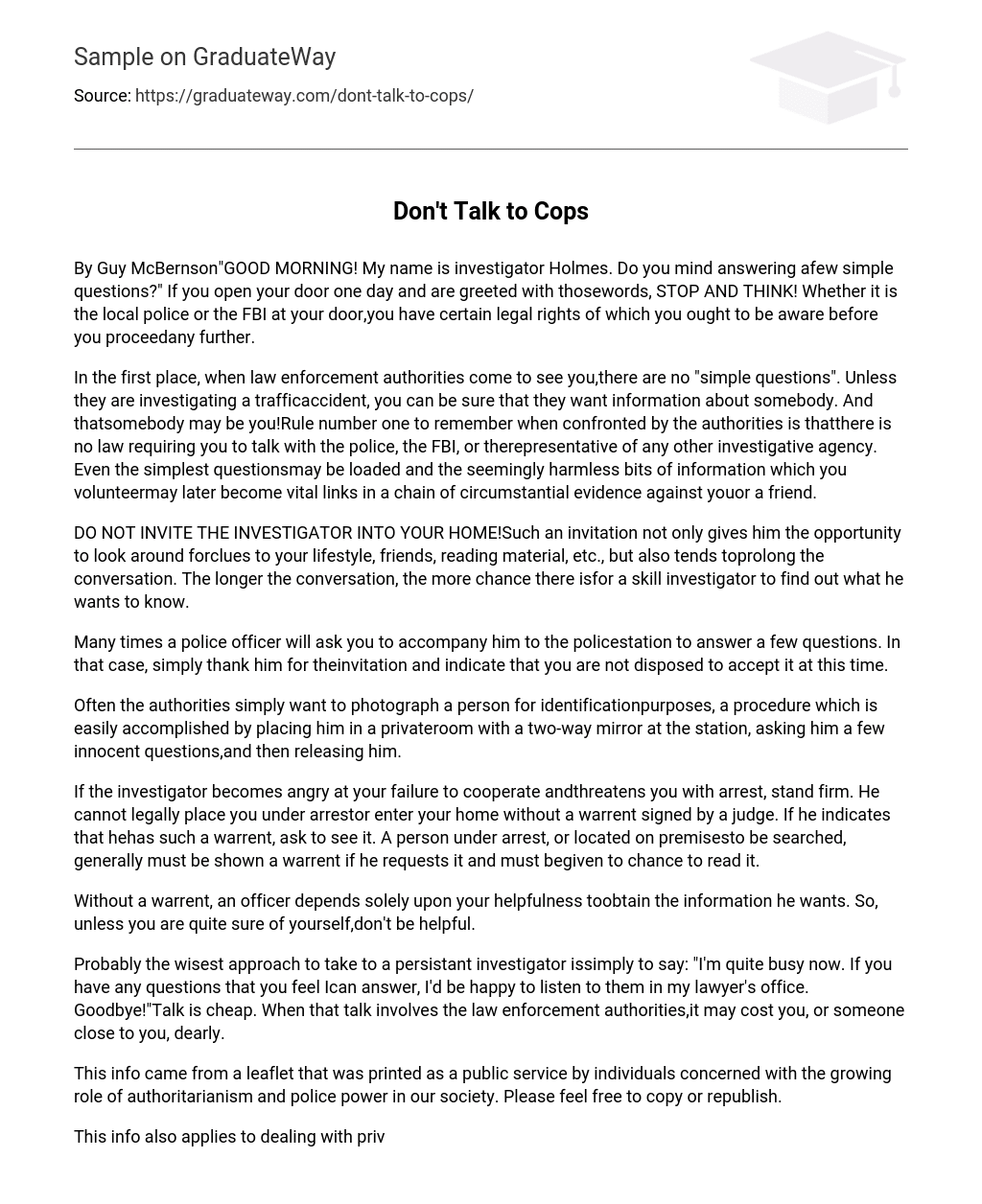By Guy McBernson”GOOD MORNING! My name is investigator Holmes. Do you mind answering afew simple questions?” If you open your door one day and are greeted with thosewords, STOP AND THINK! Whether it is the local police or the FBI at your door,you have certain legal rights of which you ought to be aware before you proceedany further.
In the first place, when law enforcement authorities come to see you,there are no “simple questions”. Unless they are investigating a trafficaccident, you can be sure that they want information about somebody. And thatsomebody may be you!Rule number one to remember when confronted by the authorities is thatthere is no law requiring you to talk with the police, the FBI, or therepresentative of any other investigative agency. Even the simplest questionsmay be loaded and the seemingly harmless bits of information which you volunteermay later become vital links in a chain of circumstantial evidence against youor a friend.
DO NOT INVITE THE INVESTIGATOR INTO YOUR HOME!Such an invitation not only gives him the opportunity to look around forclues to your lifestyle, friends, reading material, etc., but also tends toprolong the conversation. The longer the conversation, the more chance there isfor a skill investigator to find out what he wants to know.
Many times a police officer will ask you to accompany him to the policestation to answer a few questions. In that case, simply thank him for theinvitation and indicate that you are not disposed to accept it at this time.
Often the authorities simply want to photograph a person for identificationpurposes, a procedure which is easily accomplished by placing him in a privateroom with a two-way mirror at the station, asking him a few innocent questions,and then releasing him.
If the investigator becomes angry at your failure to cooperate andthreatens you with arrest, stand firm. He cannot legally place you under arrestor enter your home without a warrent signed by a judge. If he indicates that hehas such a warrent, ask to see it. A person under arrest, or located on premisesto be searched, generally must be shown a warrent if he requests it and must begiven to chance to read it.
Without a warrent, an officer depends solely upon your helpfulness toobtain the information he wants. So, unless you are quite sure of yourself,don’t be helpful.
Probably the wisest approach to take to a persistant investigator issimply to say: “I’m quite busy now. If you have any questions that you feel Ican answer, I’d be happy to listen to them in my lawyer’s office. Goodbye!”Talk is cheap. When that talk involves the law enforcement authorities,it may cost you, or someone close to you, dearly.
This info came from a leaflet that was printed as a public service by individuals concerned with the growing role of authoritarianism and police power in our society. Please feel free to copy or republish.
This info also applies to dealing with private investigators, andcorporate security agents.
Category: Law





